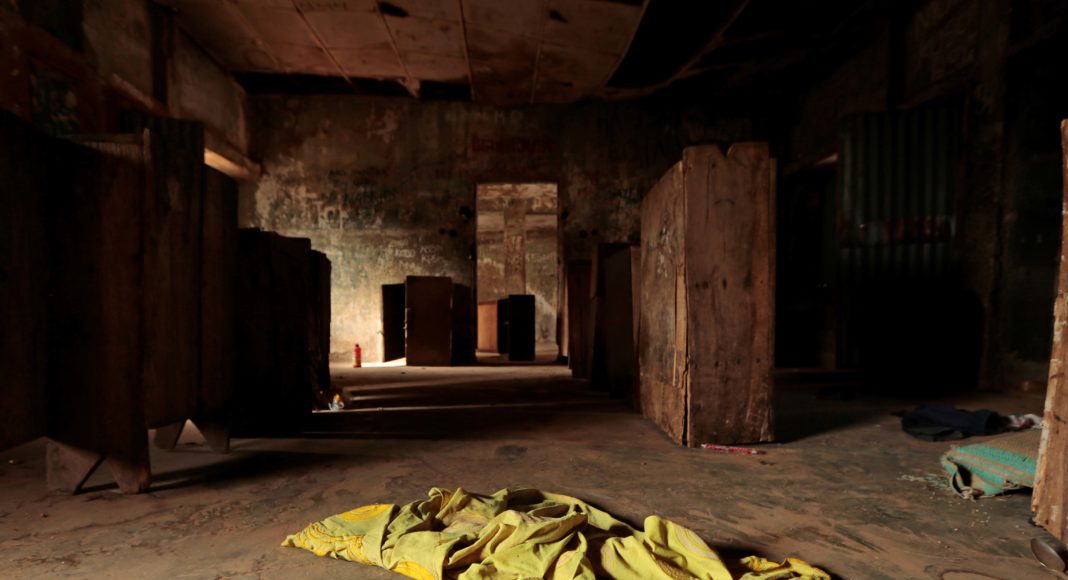By Dounard Bondo
Gunmen kidnapped 317 schoolgirls from the Government Girls School in Jangebe town, Zamfara state, in northern Nigeria overnight from Thursday to Friday. According to multiple sources, the gunmen arrived on motorbikes and on foot. They entered the school and ordered the students to come out, rounded them up and left with them in the dark.
Residents of the town said they heard gunshots late Thursday night and early Friday morning, but it was not until dawn on Friday morning that residents confirmed the kidnaping of the students. Security forces have been deployed to the town and search and rescue operations have begun.
This mass abduction is the latest in a spate of kidnappings by armed groups whom the government calls “bandits” in northern Nigeria. Earlier this month, 42 people including 27 students were kidnapped from a school in Niger state and are yet to be released. In December, 2020, 300 boys were kidnapped from Government Science Secondary School in Katsina state. Both states border Zamfara state.
The kidnapping of students could potentially lead to a reduction in school enrollment in a region that already faces such a problem. According to a 2018 UNICEF report, 10 million students are out of school in Nigeria. Only 67 percent of six to 11-year-olds regularly attend primary school, despite the fact that government provides free primary education. The pre-primary participation rate is 60 percent, with gross attendance rates of 24 percent in the north. In northern states like Borno, which is plagued by the Boko Haram terrorist group, 74.8 percent of children aged four to 16 years have never attended school.
In a bid to free hostages in recent kidnappings, state governments have allegedly paid huge amounts in ransom money. Earlier this month, the Zamfara caucus in the national legislature also called for repentant bandits to be given amnesty. Critics say these moves have incentivized kidnapping and insecurity.
According to Dr. Olamide Samuel, an arms control specialist and senior teaching fellow at SOAS University of London, the prevalence of unregistered and unaccounted firearms and the over-reliance on the Nigerian armed forces to respond to non-state groups are key drivers of insecurity in northern Nigeria.
“There are indications that the government has caved in to ransom demands by non-state groups (especially those primarily involved with kidnappings). And it is most likely to facilitate the emergence of a conflict economy, where criminal groups become more audacious, and better funded,” he explained.
Several parts of northern Nigerian have been plagued by terrorism and armed groups over much of the last decade. Many voters were hopeful that violence would drastically reduce with the election of current president Muhammadu Buhari, a former military president who made security a major part of his platform. However, despite a rising national security budget, terrorism and armed insurgency have continued unabated.
In response to the recent kidnaping, President Buhari stated on Twitter that the government’s primary objective is to recover all the hostages alive and unharmed. He further stated that while the government has the capacity to deploy massive force were the armed groups operate, the fear that villagers and hostages could be used as human shield prevents any such action.
Buhari also called on states to reconsider policies that give out ransom payments of cash and vehicles to bandits as it might backfire, saying that “the government would not succumb to blackmail by bandits and criminals who target innocent school students in the expectation of huge ransom payments.”
The frequency of the kidnappings has desensitized some of the population towards the practice. The 2014 kidnap of 247 school girls in the Chibok community of Borno by the Boko Haram terrorist group resulted into national and international outrage, numerous protests and a digital campaign with the hashtag #BringBackOurGirls. However, as more kidnappings have repeatedly taken place, protests against them have drastically reduced.
For residents in the Jangebe town, the kidnappings have brought a toxic mix of sadness, anger, and hope that their daughters and sisters will be freed soon. Villagers attacked a vehicle carrying journalists who came to report on the recent kidnapping out of anger and frustration at the situation, the journalists said. For many in Jangebe, in Nigeria, and around the world, people can only hope that the girls be returned safely.

